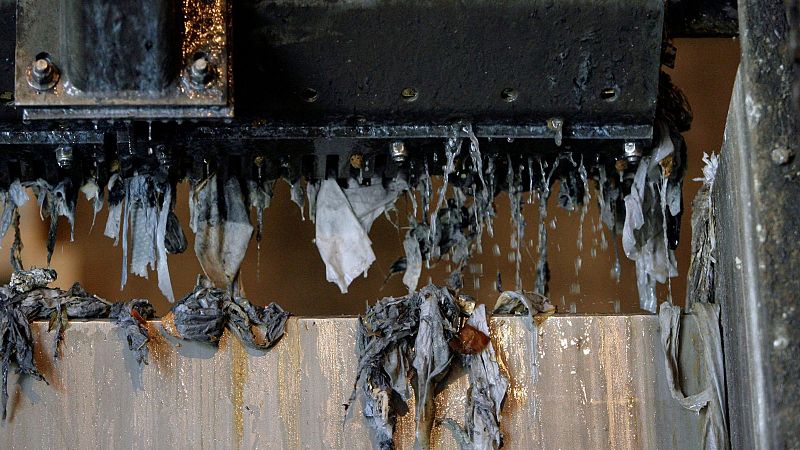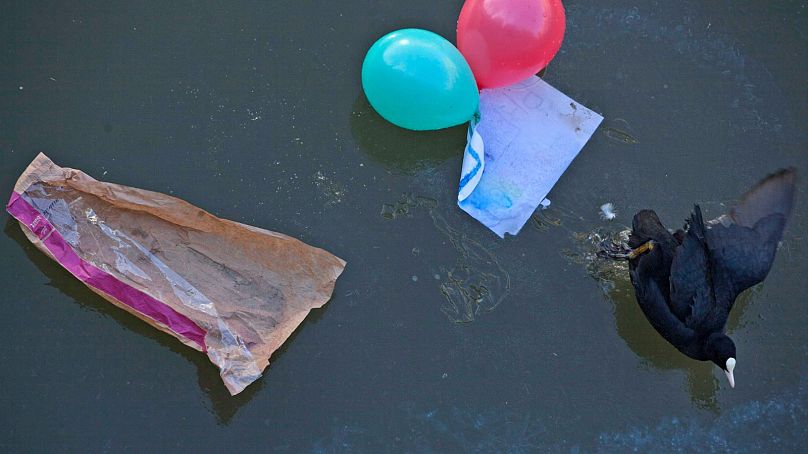
Spain is set to ban people from throwing wet wipes down the toilet and deliberately releasing disposable balloons, in a bid to protect its rivers and seas from plastic pollution.
The law being prepared by the government will make wet wipe manufacturers cover the cost of cleaning up their products from the country’s clogged sewers and water-treatment plants.
Released this week, the draft decree is aimed at ensuring Spain meets the UN’s Sustainable Development Goals concerning responsible consumption and production, and conserving the ocean.
Wet wipes and balloons are the fifth and ninth most commonly found single-use plastic items on European beaches, according to an EU directive referenced by the Spanish government. It also reiterates that marine litter “has a transboundary character in nature and is considered a growing global problem.”
Why are wet wipes bad for the environment?
Marketed as a household convenience, wet wipes are anything but in the wider world.
“Wet wipes - even those made with natural polymers that haven’t been chemically modified - have a negative environmental impact and significantly affect the functioning of the sewer and purification networks,” Spain’s legislation says.
“Because they do not disintegrate completely, they cause obstructions in the sewer system that reduce its water retention capacity and increase the risk of overflows - especially during spells of heavy rain.”

That builds up a hefty bill for authorities. The annual cost of clearing wet wipes from sewer and purification systems is around €230 million, according to figures from the Spanish Association of Water Supply and Sanitation.
And the environmental cost is huge, as even biodegradable wipes have been shown to stick around for years. Alongside cluttering our waterways, the fibres and microfibres from these wipes can kill animals which mistakenly ingest them.
The fibres absorb harmful chemicals from wastewater, UK charity Final Straw Foundation warns, acting like toxic sponges in aquatic ecosystems.
How will Spain’s ban on flushing wet wipes work?
Spain is looking to transfer the cost of cleaning up this plastic pollution to producers.
The country’s new law would mean wet wipe manufacturers have to cover the costs of cleaning up their products, “including cleaning of sanitation and treatment infrastructure, as well as its subsequent transport and treatment”.
The companies will also be obliged to cover the costs of “awareness-raising measures” - with the government stressing that public education is a crucial part of the solution.
Although genuinely biodegradable wipes will be exempt from the ban on flushing wet wipes down the toilet, Spain’s environment ministry is urging people not to throw any kinds of wet wipes down the loo.
It remains to be seen how the consumer part of the legislation will work in practice.







